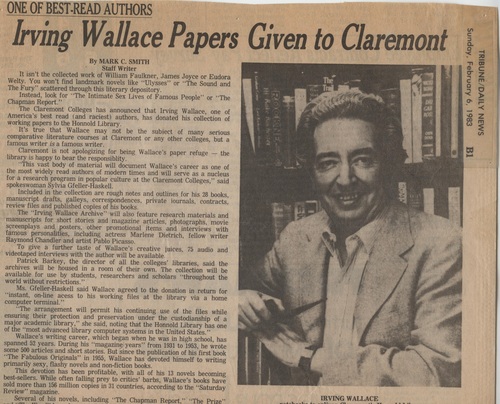As I prepare to discuss my experience with the Irving Wallace collection at our CCEPS presentations next week, I’m thinking about the nature of change in the archives. Technologies change, archival practices adapt to new circumstances, and, perhaps most interestingly, the materials in our care are subject to unpredictable shifts in demand.
A collection might go unused for decades only to be re-discovered by new researchers who bring to it new passions, new perspectives, and new questions. It is a beautiful thing that, for all of our focus on ensuring the long-term preservation of our materials, archivists ultimately have little control over how these materials will be used by researchers over time.
All of which is to say, we can’t predict the long-term relevance of the Irving Wallace collection. All we can do is properly arrange and describe the materials, ensure their physical stability, and, at every opportunity, share what we know and find fascinating about the collection with the public.
